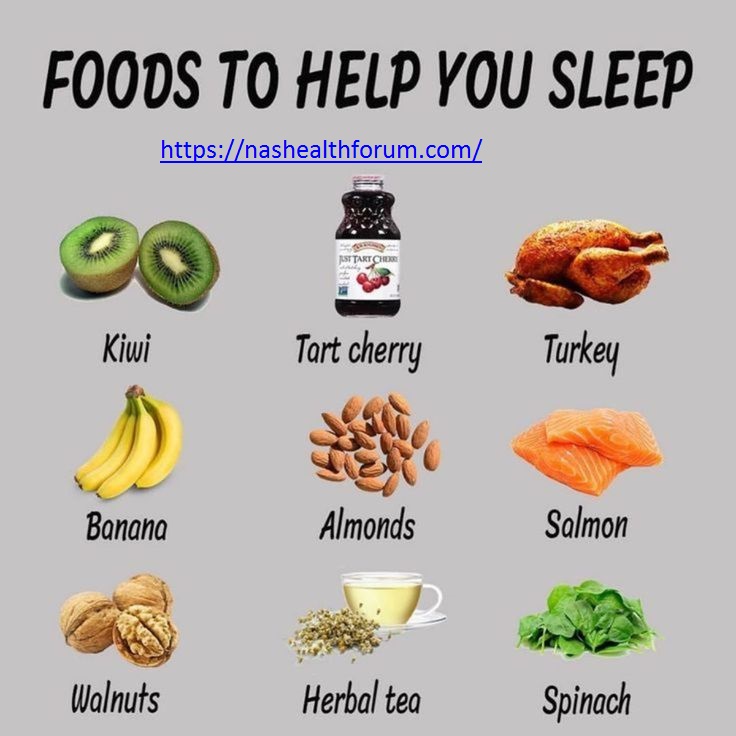Quality sleep and neurology & Foods that help you sleep at night:-

Sleep and neurological health are intrinsically linked. Quality sleep is necessary for healthy brain function, and neurological disorders can profoundly affect sleep. Maintaining good neurological health, in turn, contributes to better, deeper sleep. For improved sleep quality, utilize strategies for better sleep, including keeping a steady bedtime routine, minimizing screen time just prior to bed, and ensuring a peaceful setting.
Table of Contents
Studies also hint that evening exposure to green light might be good for sleep, supporting the body’s natural circadian rhythm. In addition to light manipulation, diet can help improve sleep quality. If you need help sleeping at night, you can turn to milk, bananas, kiwis or almonds, all good sources of magnesium, tryptophan and other sleep-promoting nutrients. It is helpful also to supplement with the best vitamins for better sleep, like magnesium, vitamin D, B6, and melatonin.

Sleep disturbances are common, and you aren’t alone if you experience restless or hard nights. Whether you’re seeking peaceful slumber or yearning to feel more like yourself, sleeping less isn’t solely about what you do at night, though it is now a whole day thing. A balance, healthy fuel, and awareness of your body can do wonders for quality sleep and your neurological health.
Fortunately, we have an abundance of natural resources and remedies available to aid our sleep, many of which can be found in our kitchens. We often underestimate the extent to which our daily food and beverage decisions influence our sleep cycles. This article previews the sleep-accelerated diet-friendly and introduces beautiful melatonin, inducing foods and other solutions to help people feel better and faster. Let’s explore how common food items can fight off sleepless nights and help us rise and shine.
Why Can’t You Comfort Sleep?
Before we dive right into the list of melatonin-inducing foods, let’s explore some of the reasons you might be having difficulty falling asleep. Our mind and body must rest and shape our body and mind other days. External or internal factors can also contribute to in-honing your inability to sleep. Some common causes of sleep problems are:
Sleep disorders, such as insomnia. Your written record could be insomniac or other sleep diseases and finding it difficult to get a good night’s sleep. Consult a professional for a proper sleep issue diagnosis.
Always Anxiety and Apprehension:–
If you’re worrying too much about the future or regretting too much about the past, then you may have difficulty drifting off to sleep. But if you do, you’ll find yourself waking up in the middle of the night or being overwhelmed by nightmares.
Lack of proper diet. Along with bad foods and not having a healthy diet, there can be some alterations to your diet, making your sleep harder as well. Drinking some food sources and bites, for example, caffeine and alcohol, not long before hitting the sack can disrupt your sleep cycle.
Lack of physical movement. Let’s say you have a sedentary lifestyle with minimal to no exercise. In that scenario, it can additionally attend to your rest designs and can likewise keep you up late and have a difficult time dropping asleep or staying asleep. The production of melatonin, the sleep hormone, is endowed by exercise, so according to another theory, being short of work can also affect your sleep hormone production.
Too much monitor time. Using your digital campaign before sleep can also impact your sleep. The blue light emitted from digital screens can disrupt your circadian rhythm, preventing you from falling asleep or even staying asleep overnight,
If you’re feeling pressure to catch up on a good night’s sleep, some foods may aid in your sunset routine. These foods hold natural complexes to help with rest and carry the main instrument of the body’s sleep.
There exist some better food options which promote improving your value to sleep:–

Almonds—the little sleep enhancer:-
Magnesium really deals with magnesium and aluminium; however, almonds have a generous presence to calm down the strength and balance the anxious structure. It also contains melatonin, the hormone that regulates the variable sleep and awake cycle. Dark chocolate and almonds for better quality sleep: Eating a small handful of almonds before bedtime can help reduce anxiety and prepare your body for restful sleep.
Rice for Quality sleep and neurology:-
Rice is a carbohydrate-rich food that helps promote the production of tryptophan, an amino acid used to make serotonin and melatonin, hormones associated with rest and sleep. This is because the carbohydrates in the rice have a calming effect, inducing sleep a few hours later.

Warm Milk – Grandma Was Right:-
A warm glass of milk before bed is a traditional treatment for insomnia. Tryptophan, a precursor for serotonin and melatonin, in milk. The warmth of the milk also has a soothing effect, signalling to your body that it’s time to unwind.
Kiwi– small but mighty good for Quality sleep and neurology:-
Rich in antioxidants and serotonin, a hormone that regulates the sleep and wake cycle. The consumption of one or two kinds an hour before going to sleep may improve sleep onset and duration. Kiwis are high in vitamin C guys, which rings up great for combating stress.

Fatty Fish– An Amazing Food For Brain and Sleep:-
Fatty fish such as salmon, mackerel and sardines are superb sources of vitamin D and omega-3 fatty acids. These nutrients play a modifiable role in the serotonin stage, which can enhance sleep quality. Fatty fish in your dinner might help you go to sleep with no hassle and keep within normal limits for general mind health.
Cherries – Naturally Sweet Sleep Support:-
One of the few natural sources of melatonin is cherries, especially tart cherries. Melatonin levels in the body can be increased by consuming tart cherry juice with the sunset or by taking tart cherries.
Herbal Tea (Chamomile, Ashwagandha, or Tulsi):-
Herbal teas like chamomile, ashwagandha and tulsi are known for their calming effect. Chamomile also contains an antioxidant known as apigenin, which attaches to receptors in the brain to promote sleepiness. Ashwagandha and Tulsi help reduce stress and calm the nervous system, promoting deep, restful sleep.
Magnesium and Tryptophan:-
It is an essential amino acid (the body itself cannot produce magnesium and tryptophan — it must be obtained from food) and is found primarily in protein-based foods, both animal and plant-based. Good sources include dairy: cheese and milk; eggs; poultry: chicken and turkey; fish; nuts and seeds. It is also available in plant-based protein sources like soy and chickpeas.
Eating all these super foods regularly during the evening can help develop a bedtime routine, assisting you in falling asleep faster. Remember to eat them a few hours before bed so your body can adequately absorb and utilize the antibiotic compound.
Smooth Sleep and Additional Details:-
Steer clear of large meals, caffeine and alcohol just before bedtime.
Maintain a consistent sleep schedule, even on weekends.
Dim the lights and lessen screen contact an hour before bed to increase melatonin levels.
You might even keep a sleep periodical to help you track which days (or even how well you sleep after eating certain foods or engaging in certain habits).
Intertwining some of these sleep-healthy foods into your habit may have you falling asleep sooner, staying asleep longer, and waking more refreshed.

Pingback: Super Health Benefits of Almonds/Cashew nuts/Pistachios and Peanuts:- nashealthforum